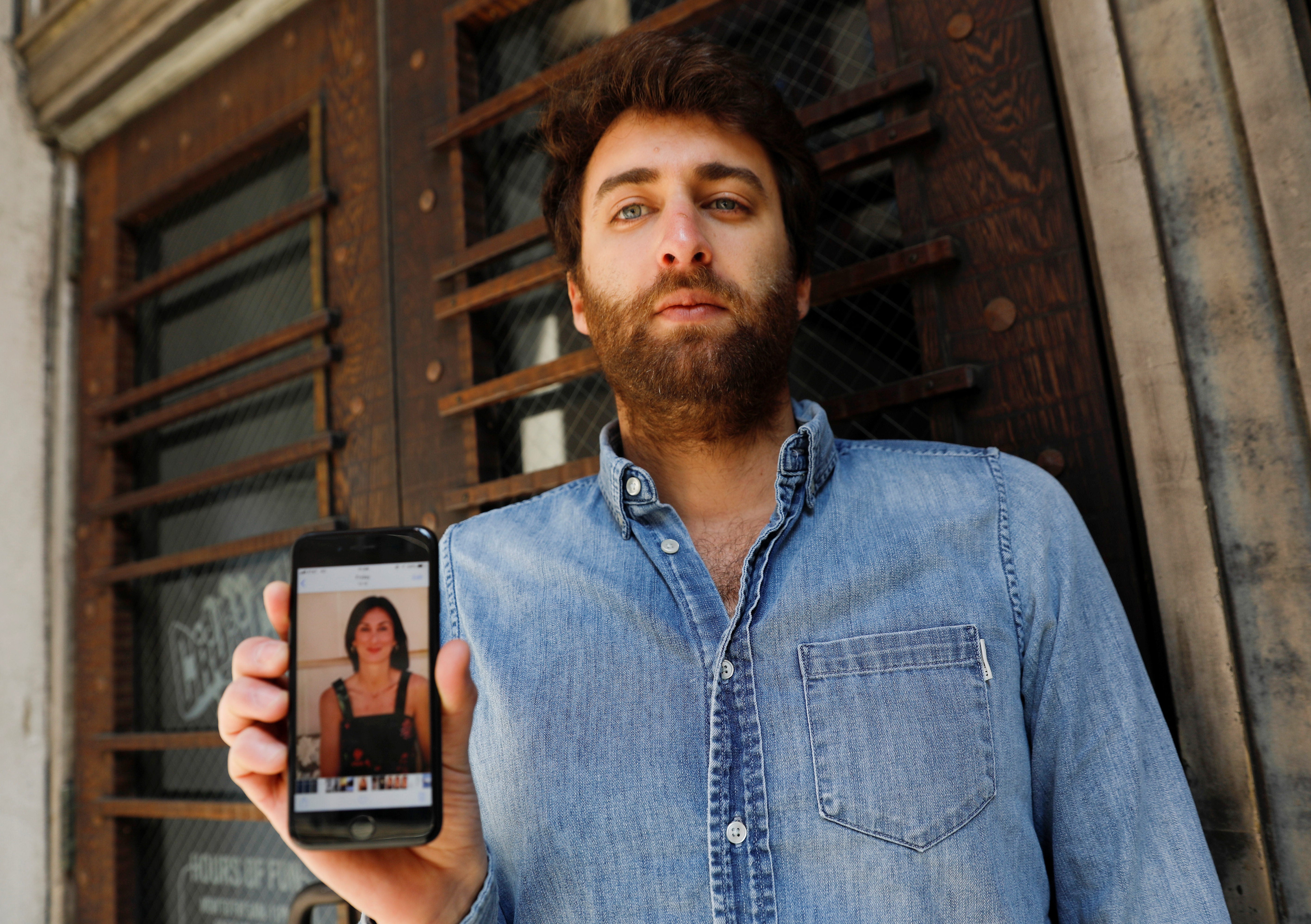
The family of an investigative journalist who was murdered in Malta six months ago would rather “burn” her laptop in front of police than risk revealing her sources by handing it over to them, her son has said.
Daphne Caruana Galizia, who had exposed Malta’s links to offshore tax havens through the Panama Papers leak, was killed by a car bomb as she drove away from her home in Mosta on 16 October.
Three people have been charged with her murder, but her family continue to fight for answers as to who commissioned the killing.
One of Caruana Galizia’s three sons, Matthew (pictured), updated press freedom supporters on the family’s fight for justice at the launch the 2018 World Press Freedom Index today.
The index is compiled annually by Reporters Without Borders (Reporters Sans Frontières). It ranked Malta 65th this year, down 18 places, as a direct result of Caruana Calizia’s murder.
RSf said her death had “lifted the veil on the judicial harassment and intimidation to which journalists are routinely subjected in the island state”.
Matthew, who was himself on the International Consortium of Investigative Journalists team that won the Pulitzer Prize for its work on the Panama Papers scandal, called for the European Union and its individual member states to offer more support to journalists.
Earlier this week, after calls from politicians across Europe, the European commissioner for justice, Věra Jourová, announced she will put further pressure on police to find those responsible for Caruana Galizia’s death during an upcoming trip to Malta.
Matthew said: “It’s really essential that journalists are supported at all times, especially when they are alone and exposed. That’s when their lives are most at risk.”
However he also said his family was unable to trust Maltese police, after reporting by Reuters appeared to show that three suspects in her murder had been warned they would be arrested, giving them time to agree not to speak under interrogation.
Matthew said: “It begs the question, how did they come to this agreement beforehand? And it seems to validate the Thomson Reuters reporting, which is that there was a leak from the police. The police were unable to secure evidence and this got out somehow which I think is deeply, deeply worrying.
“We can’t trust the police with evidence. We simply can’t put the lives of our mother’s sources at risk. We would never do that, ever.
“As my own father said: ‘I would burn my wife’s laptop in front of the police rather than hand it over to them.’
“It’s just a case where there is absolutely no political will to investigate the people who may have done this, people in politics. And it seems that there is all the political will to find out what my mother was working on in order to go after her sources.”
The stories which Caruana Galizia was working on before her death are now being continued by the Daphne Project, which was launched last week by 18 news organisations around the world including the Guardian and the New York Times.
Matthew said: “I think the partners in this investigation should be congratulated for pulling it off. I don’t think it’s ever been done before.”
He added that it was important for investigative journalists to work together “so the person doing this isn’t as lonely, isn’t as exposed as my mother was”.
“Very often progress in our society depends on individual journalists who take humongous risks,” he said.
“I think my mother really did that for our country. Not only is her death a loss to the country, because she was such a creative intelligent person who comes about once a hundred years, but also because our country lost this campaigner who moved society forward, or rather who tried her best to stop it slipping backward faster.
“Her assassination has caused a national trauma that’s going to take us more than a decade to recover from. There is no one who has stepped up to take that spot.”
He added: “It was easy for the people my mother was reporting on. All they had to do was get rid of her to kill the story.”
But he said the work of the Daphne Project and ongoing coverage into her death had meant the people behind her assassination were learning that killing her had brought them more trouble than when she was alive.
Guardian editor-in-chief Katharine Viner said she was “very happy” her newspaper was part of the Daphne Project, adding: “It will amplify Daphne’s work and show she cannot be silenced.”
Also speaking at the RSF event, former BBC News director James Harding described the death of Caruana Galizia as “one of the most alarming moments in our year as a community of journalists and people who care so deeply about journalism”.
Picture: Malta-Daphne/Reuters/Shannon Stapleton
Email pged@pressgazette.co.uk to point out mistakes, provide story tips or send in a letter for publication on our "Letters Page" blog
